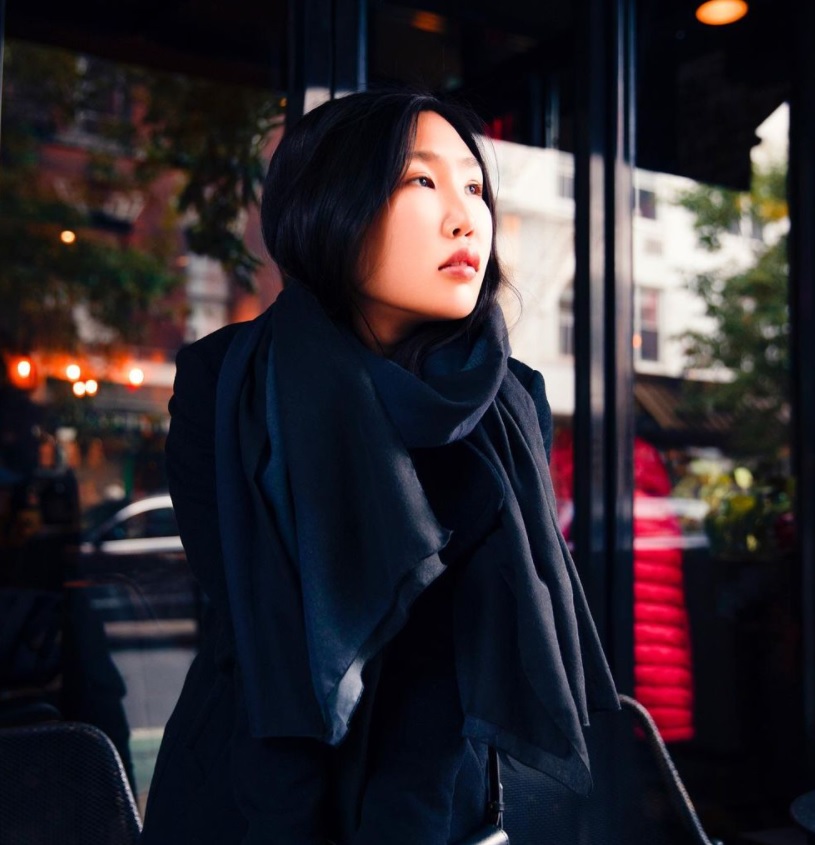
Heajin (Hailie) Kim (Photo: Instagram @nyc_photographer_nikita)
March 30, 2021 Op-Ed By Hailie Kim
There was a distinct sinking and roiling in my stomach.
“Are you a prostitute?” a man asked. I was 17 at the time. I was not, in fact, a prostitute. I was and am, however, clearly an East Asian woman.
This question: “are you a prostitute?” is one that made it so that between the ages of 18 and 22, I never wore a v-neck top.
Even my prom dress went up to my neck. It was, or so I thought, very clearly my fault. Maybe if I hadn’t worn a v-neck shirt, a man wouldn’t have stalked me to my middle school when I was 13, driving alongside me and insisting that I get in his car. Maybe if I hadn’t worn a v-neck sweater, a man wouldn’t have followed me back home from school across the 39th Street bridge and grabbed at my chest when I was 17.
This kind of fetishization and sexualization of Asian women was a clear factor in the murder of six Asian women in Atlanta.
The murderer himself confessed to targeting Asian women because they were “temptations” for his sex addiction. This sexualization of Asian women has historically been tied to xenophobia, with Chinese women being barred entry from the United States in the 19th century, suspected of being prostitutes.
There have, of course, been other historic forms of violence against Asians from the Japanese internment camps here in the US, to the deportation of Koreans from Russia to Central Asia and other Soviet satellite states in the 1930s.
The words used to sexualize Asian women include “exotic” and “submissive.”
These are adjectives that have also been used to Other Asians at large, especially “exotic.” The phrase “chinavirus” is an example of this, making COVID-19 seem exotic or foreign, and other.
In order to un-Other Asians, it is necessary for there to be more Asian representation in popular culture to start undoing the years of negative portrayals of Asians in the Arts. At the level of government, we will also need to better integrate our neighborhoods and public schools.
We need universal after school in order to ensure children of all races and socio-economic backgrounds spend time finding commonalities with each other. Perhaps I’m a little biased as an educator, but education, education, education are the ways to ensure hate crimes like the ones we are seeing cease.
Hailie Kim is an adjunct professor in the English department at Hunter College. She is running for City Council in District 26 to represent Sunnyside, Woodside, Long Island City and parts of Astoria.
3 Comments

Unfortunately many women have had these types of experiences regardless of race/ethnicity.
There is enough legitimate violence against Asians why are you fabricating it. The murderer said it wasn’t about race but sex.
Relax Pat. You should be more concerned that a Jewish family including an infant was slashed by another “victim of systemic racism” recently.
We need more cops in the streets. This is ridiculous. Old women, old men, and now infants. Who shot the gun that killed the young mom in Woodside? The most common denominator to the majority of these crimes? Yet no one wants to discuss it because the liberals don’t want to undo their awful policies of bail reform, criminal reform, and defund the police.